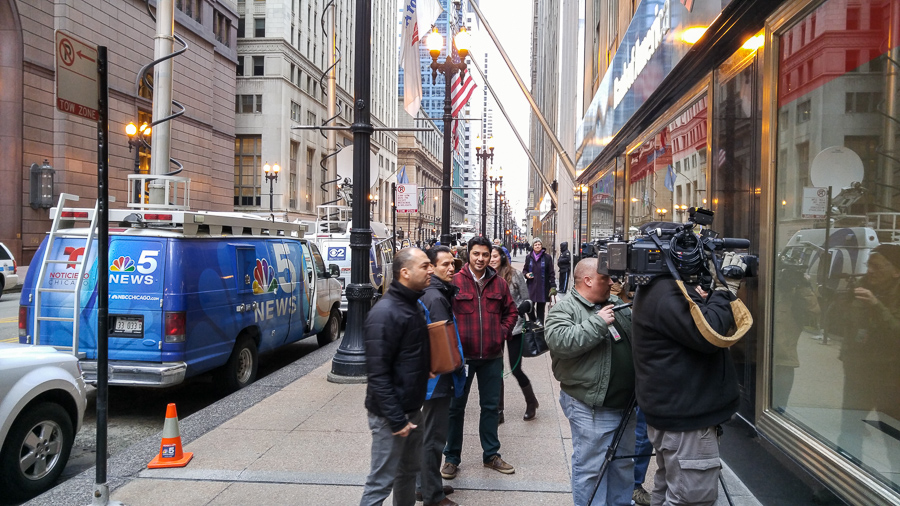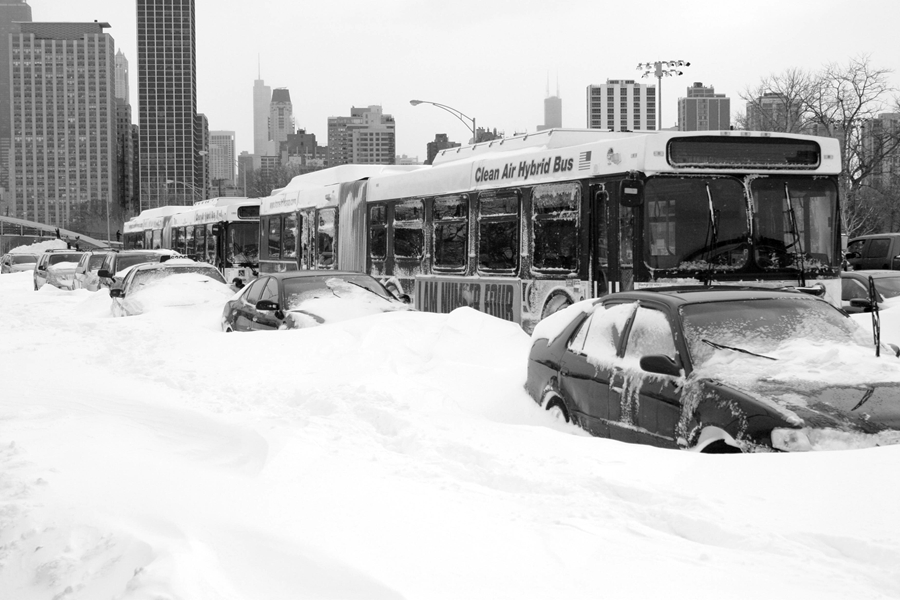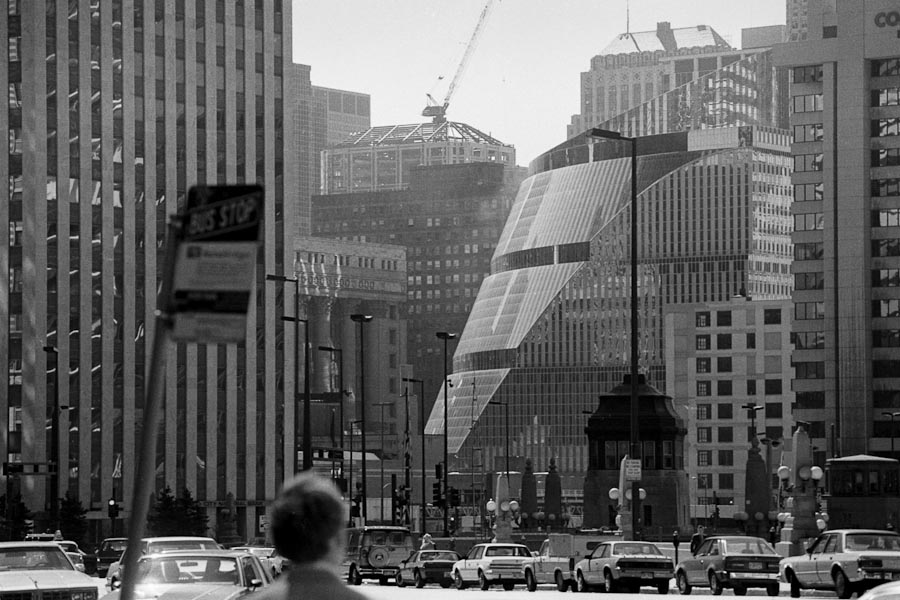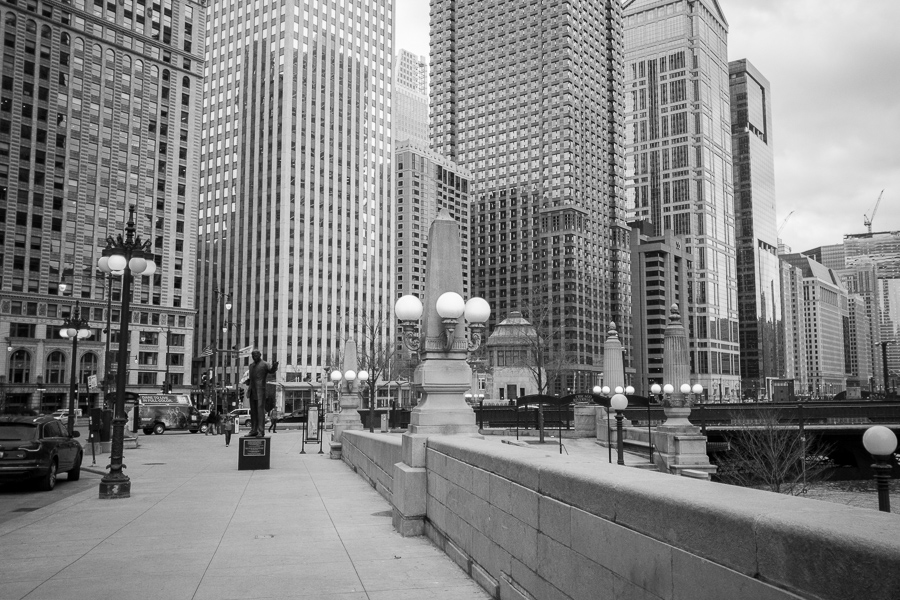I have three books in the works and two on deck (imminently, not just in my to-be-read stack) right now. Reading:
On deck:
- Kevin Hearne, "Iron Druid Chronicles" book 8: Staked.
- Kim Stanley Robinson, "Mars" trilogy book 2: Green Mars.
Meanwhile, I have these articles and blog posts to read, some for work, some because they're interesting:
Time to read.
Meanwhile, I seem to have a cold. Yuck.
This is what happens when you work across the street from the Chicago Teachers Union:
As part of their negotiations with the Chicago Public Schools and the City of Chicago, the CTU are withdrawing their funds from Bank of America. The Tribune has background:
One day after the Chicago Teachers Union rejected a contract proposal from Chicago Public Schools, district officials said they would slash school budgets and stop paying the bulk of teachers' pension contributions — moves CTU's president quickly blasted as "an act of war."
CPS officials told reporters of their plans while announcing the district would make a fresh attempt Wednesday to borrow hundreds of millions of dollars to keep the school system's finances afloat.
Mayor Rahm Emanuel is also taking shots at the union:
[B]y intentionally and unilaterally whacking tens of thousands of CTU members right in their wallet—and spreading word that Rauner is trying to sabotage the bond deal—Team Emanuel did something more: make it clear that, the Laquan McDonald controversy or not, they're tired of playing patsy.
CTU doesn't like it, and is planning a big protest rally. It accuses Emanuel of “intimidating” the union. But there's no sign of a strike, and the union will have to convince Chicagoans that its members deserve a defined benefit pension with a 3 percent compounded annual inflation hike for only the 2 percent of salary members still will have to pay.
Of course, the 500,000 children who could be turfed out of school should the union strike, and the parents who will have to stay home from work to care for them, would be the proverbial grass that suffers when elephants wrestle.
I'll have more about the news trucks outside my building later today.
I forgot yesterday—blocked it out, more likely—that not only were the February 1sts in 2011 and 2014 horrible, so was last February 1st. (On the other hand, 2012 was ridiculously warm, and 2013 was just really cold. In 2010, I was in India, so what do I know?)
Today it's just rainy and cold (but obviously above freezing), and I'm about to head into it.
It's sunny and just above freezing today, and all our snow melted over the weekend. So let's just remember for a moment the weather in Chicago five years ago today:

And just two years ago today, we got our 34th consecutive day with snowfall.
So I'll take a snowless, above-freezing February 1st any year.
I've meant to post this for a while. Here's a photo looking south-west from a point just southwest of the intersection of Wacker and Michigan, here in Chicago, in April 1986:

And here's a similar view today. Note that you can no longer see the Thompson Center, City Hall, or anything else beyond the row of skyscrapers erected on Wacker between Wabash and Clark since then:

The photos aren't from the same vantage point, because this afternoon I only had my phone and not my SLR. I will try to get a photo from approximately the same location and using the same focal length (probably 210mm) soon.
On this day 180 years ago (28 January 1836), John L. Wilson purchased 33 hectares of land about 16 km from the city, by what is now 83rd and Cottage Grove. At the time it was a swath of prairie two hours outside Chicago. But through a series of missteps, slow City workers, and a very long-lived lawsuit, no one developed the land until 1940, by which time the city had grown to surround the lot on all sides:
The property was so remote—and the value so depressed—that nobody paid much attention to it for nearly 40 years. Then, in 1875, Isaac Palmer discovered that the original land patent had been issued in his name by mistake. He decided to cash in on it.
So now the matter went to the Superior Court of Cook County. By the time the Illinois Supreme Court got the case, the City of Chicago was involved, as well as the successors to Wilson and Palmer. In 1887 the Supreme Court ruled that the Wilson successors had legal title to the property. The City of Chicago also had a valid mortgage of $1,500 against it, with 10% annual interest dating back to the unpaid October 1836 mortgage.
Except there was yet another complication—most land records had been lost in the 1871 Chicago Fire. The further details of the dispute don’t need to be elaborated here, except to say that many lawyers were kept busy over the next fifty years, with the 80-acre plot remaining vacant while the rest of the area was built up.
On August 4, 1939 the drama ended. Compound interest over 102 years had ballooned the defaulted $1,500 mortgage to $34,755,000. Because of all the mistakes various governments had made over the years, Janet Fairbank—the last holder in the chain of title from original patentee John L. Wilson—was allowed to settle the debt and have clear title to the property on payment of $30,000.
For what it's worth, $1,500 in 1837 is about $38,000 today, and $34.8m in 1939 is around $590m today.
The latest Climate Prediction Center forecasts came out this week. Illinois State Climatologist Jim Angel says it's pretty unusual:
[T]here is a chance that La Niña conditions (the opposite of El Niño) could develop in the summer or fall time frame. Unfortunately, the appearance of La Niña in summer or fall in Illinois typically means hot, dry weather.
This is the first time I can remember CPC forecasting an increased risk of warmer and drier conditions so far out for Illinois. If the forecast comes to pass, this could be a challenging summer.
Despite the chilly weather earlier this week, the latest Chicago forecast calls for slightly-warmer-than-normal temperatures all the way out till next Wednesday. I'm fine with warmer, drier winters here. But like Angel, I'm worried about a hot, dry summer.
I've just spent a few minutes going through all my company's technology expenses to figure out which ones are subject to the completely daft rental tax that Chicago has extended to cover computing services. The City theorizes that rental tax is payable whenever you pay to use a piece of equipment that belongs to someone else for a period of time. This makes a lot of sense when you go to Hertz, but less when you use Microsoft Azure.
My understanding of the tax and the City's might not be completely orthogonal, but here are some examples of things that I've flagged for my company.
Salesforce.com: This clearly falls within the tax ruling. You pay for an online service that runs on someone else's computers. This is exactly what the city was after when they extended the rental tax.
Microsoft Azure: The tax only seems to cover Azure Compute fees, and specifically exempts Storage charges. So how are database hours taxed, then? With Azure, you pay for Database compute and storage together. Clearly Azure Storage is exempt, though. So now we've got a recordkeeping burden that Microsoft can't help us with yet. Great.
LinkedIn Professional: This may be subject to the tax, if you interpret the tax very broadly. But a LinkedIn subscription isn't so much for the use of its computers (which is free), but for enhanced features of the product that seem more like consulting services than compute time. I think we'll see some litigation over services like this one.
JetBrains ReSharper software license: This does not seem subject to the tax, because we're only paying for a license to run the software on our own computers.
Basically, the City is trying to raise revenue any way it can, but they don't have the technical wherewithal to understand why the tax as constituted makes no sense. Some people in my company feel this makes Chicago unattractive to business, but that's true only if you don't count the difficulty getting talented people to move away from all the city has to offer. It's a frustrating new tax, though, and one the City probably wouldn't have to impose if the rest of the state would pay for its share of the services that Chicago provides to it.
This means I have some time to digest this over the weekend:
I might have a chance to read this weekend. Perhaps.